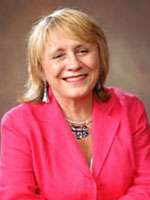Education expert Suzanne Miller says a longer school year will not in and of itself increase student learning; the extra time must be used wisely.
(PhysOrg.com) -- President Barack Obama's plan to extend the school year to increase achievement among American students would only help bridge the gap between American students and those in other countries if the extra time was used wisely, says the University at Buffalo's Suzanne Miller, a national expert in learning and instruction and former secondary school English teacher.
"Too many students drop out of school or mentally drop out, just putting in time until graduation," says Miller, who is chair of the Department of Learning and Instruction in UB's Graduate School of Education, and the guiding force behind UB's "City Voices, City Visions," digital video project to show high school students how they can incorporate digital videography into their classroom work.
Additional time in classrooms will not in and of itself increase student learning, according to Miller. Success or failure depends more on what teachers and schools do with the extra time.
"If the extra time were used to add back the arts; to engage students in purposeful discussion, writing and inquiry about curricular issues and concepts; to engage them in social action or service learning projects; and to provide opportunities for them to design digital texts to represent their learning," says Miller, "then additional time would be a great asset in 21st century schools."
Provided by University at Buffalo (news : web)



















